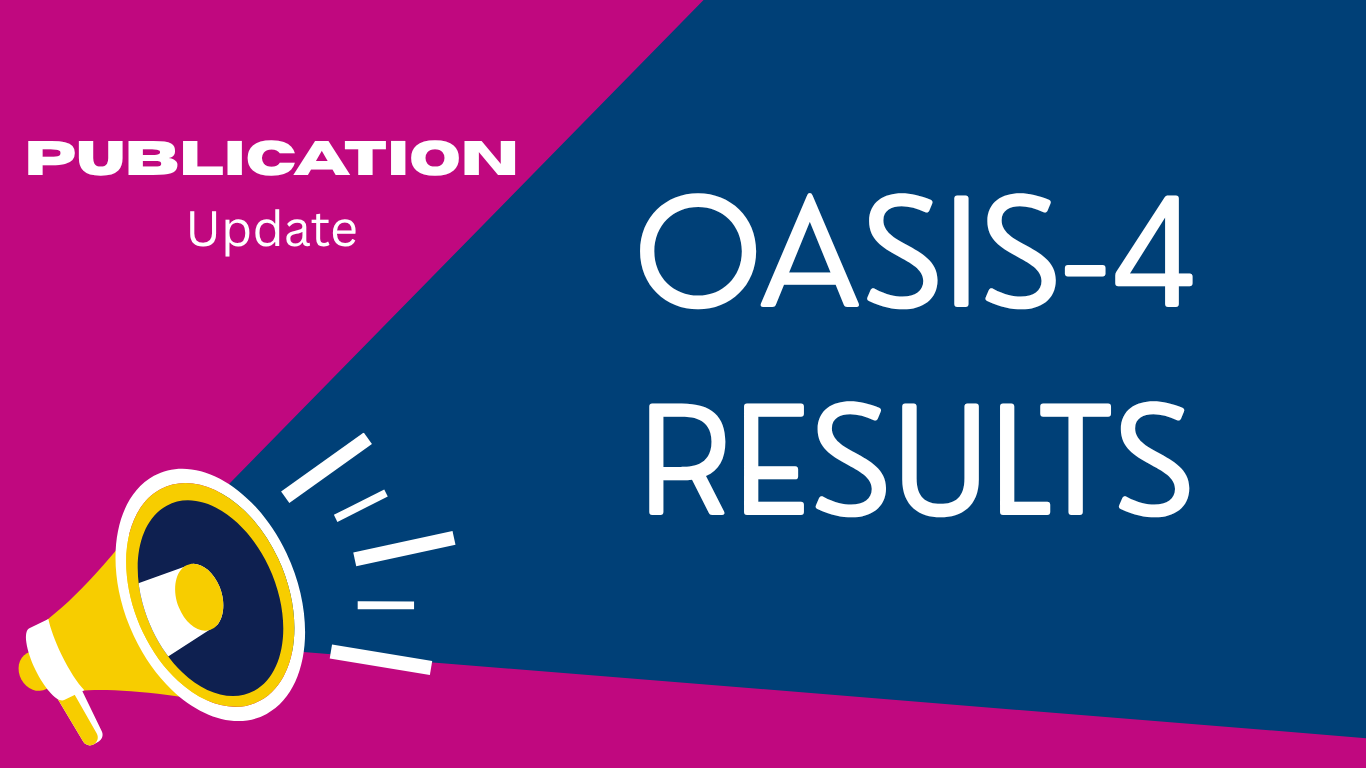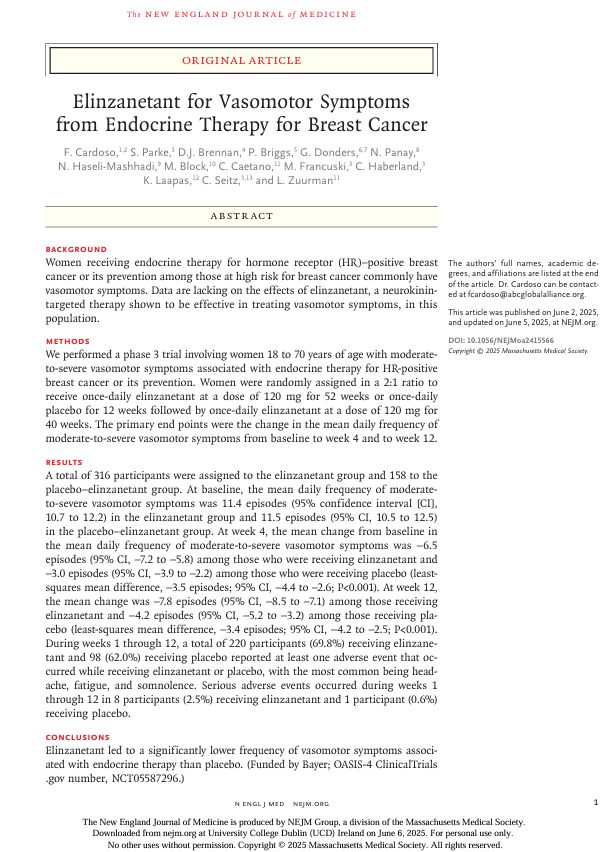Monday, 16 June, 2025
Results from Phase III OASIS-4 Trial shows that elinzanetant significantly decreases the occurrence of moderate to severe vasomotor symptoms linked to endocrine therapy in breast cancer patients

(opens in a new window)OASIS-4, a phase 3, randomised, double-blind, placebo-controlled clinical trial took place in 90 sites internationally, including St. Vincent’s University Hospital and Mater Misericordiae University Hospital in Dublin. This study examined the safety and effectiveness of the drug elinzanetant. This is a new non-hormonal treatment aimed at relieving vasomotor symptoms, such as hot flushes and night sweats in women undergoing endocrine therapy for hormone receptor (HR)-positive breast cancer or its prevention.
The study included women between the ages of 18 and 70 who were having at least 35 moderate to severe vasomotor symptoms per week while taking tamoxifen or aromatase inhibitors, with or without other hormone-blocking medications.
Key Findings:
- Elinzanetant significantly reduced the frequency of hot flushes and night sweats, improved sleep, and enhanced menopause-related quality of life compared to placebo.
- More than 7 in 10 women on elinzanetant reported at least a large reduction in symptoms by week 12, a clinically meaningful improvement.
- These findings align with previous studies (OASIS-1 and OASIS-2), showing consistent results across different groups of people.
- Safety: The medication was well tolerated, with side effects similar to those experienced with placebo (dummy treatment).
- Patient engagement was strong, over 9 in 10 women who completed the year-long trial chose to continue treatment for an additional two years, suggesting high satisfaction and sustained benefit.
Elinzanetant offers a new, targeted approach, specifically addressing the needs of women who experience menopause-like symptoms due to cancer treatment. With leading Irish hospitals actively involved in this international trial, patients in Ireland are contributing to, and standing to benefit from, meaningful advances in cancer care and quality of life.
You can find the article in (opens in a new window)here and if you would like to read more of the research produced by the UCD Cancer Trials Cluster's researchers and trial units, you can find our publication list on our 'what we do' page here.